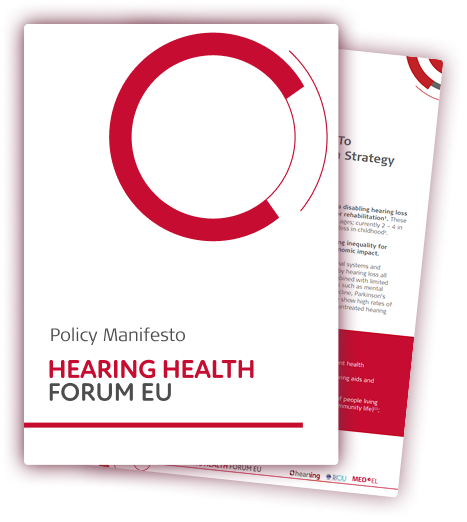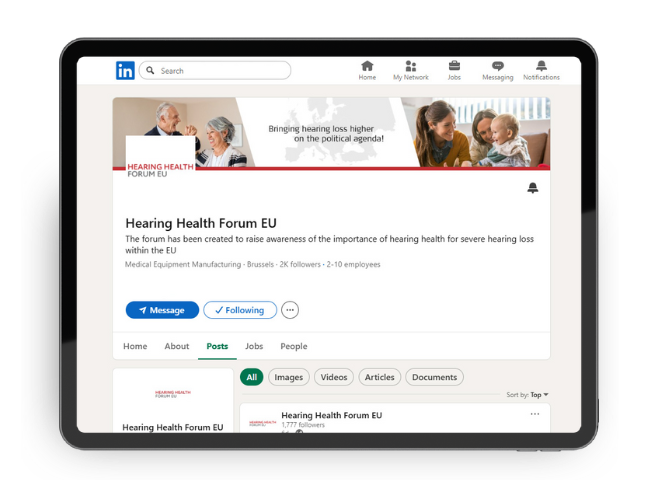Research & Data
To shape effective and evidence-based policies, it is essential to address critical gaps in hearing health research. Strengthening research efforts, closing information voids, and equipping decision-makers with timely, actionable insights are essential steps forward. The World Health Organization has identified several priority areas that align with our Policy Manifesto:
Barriers to Accessing Ear and Hearing Care
- Investigate the challenges in accessing hearing care and develop strategies to overcome them
- Explore tools and approaches to promote safer listening practices among those at high risk.
Innovative Approaches for Early Identification
- Develop and evaluate cost-effective methods for identifying hearing loss throughout the life course.
- Focus on older adults and school-age children who are at increased risk.
Health Financing Models
- Research sustainable funding strategies to ensure accessible hearing technologies and services.
Policy Impact Assessment
- Evaluate how policies and regulations improve access to hearing technologies and safe listening practices.
- Address hearing loss prevention through noise control, ototoxic medication regulation, and awareness campaigns.
Public Health Strategy Effectiveness
Analyze the cost-effectiveness of public health initiatives, including:
- Standards for safe listening devices and venues
- Awareness campaigns on ear diseases and hearing loss prevention
- Noise reduction measures in workplaces and recreational areas
- Immunization programs targeting hearing loss prevention
Our Policy Objective
Research and data
Further support research and the collection of data to facilitate evidence-based policymaking for persons living with hearing loss.
Our Policy Solution
Support Hearing Research
Call on the European Commission to support research on hearing loss, digital hearing health, and treatment options considering quality of life and economic impact.
Improve Surveillance Models
Call on Member States to develop new models for public health surveillance that collate and report health needs and intervention outcomes for people living with hearing loss.
Recognise Hearing Disability
Call on Member States to include and standardize hearing loss as a disability category within national census and health surveys to enable policies to accurately reflect the needs of persons living with hearing loss.
Join our Efforts: Endorse the Policy Manifesto
We call on the European Commission to take action. By signing the Manifesto, you are supporting our efforts in advocating for a European Hearing Health Strategy!


Stay up to Date
Stay informed about the latest updates, research findings, and initiatives by following us on LinkedIn. Get involved and be part of the conversation.
Follow on LinkedIn



